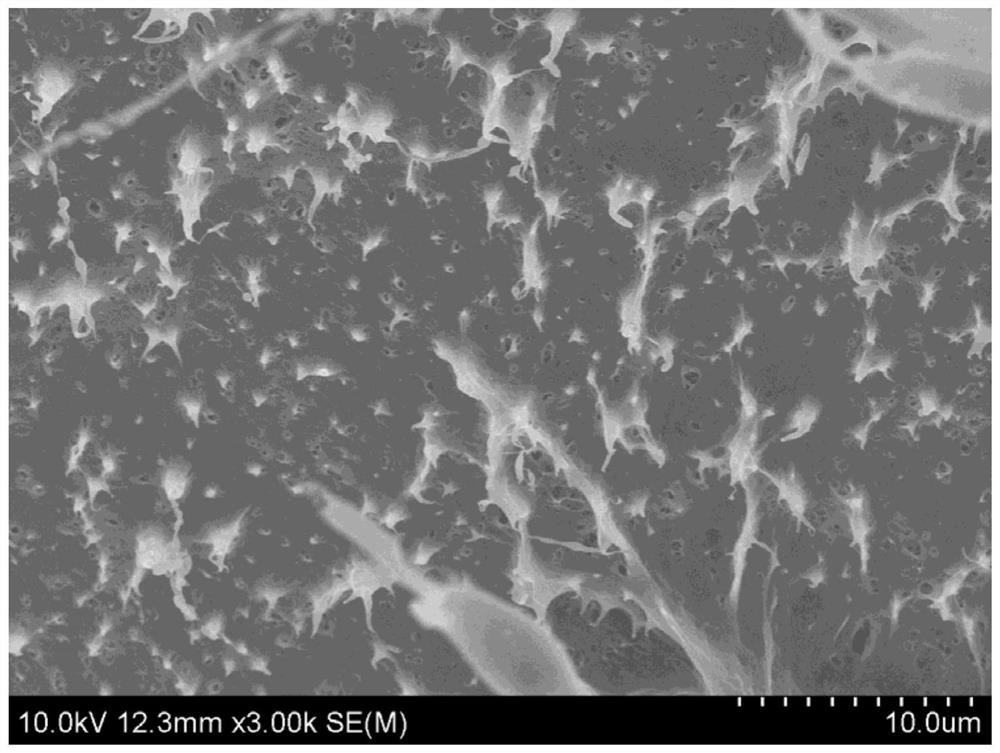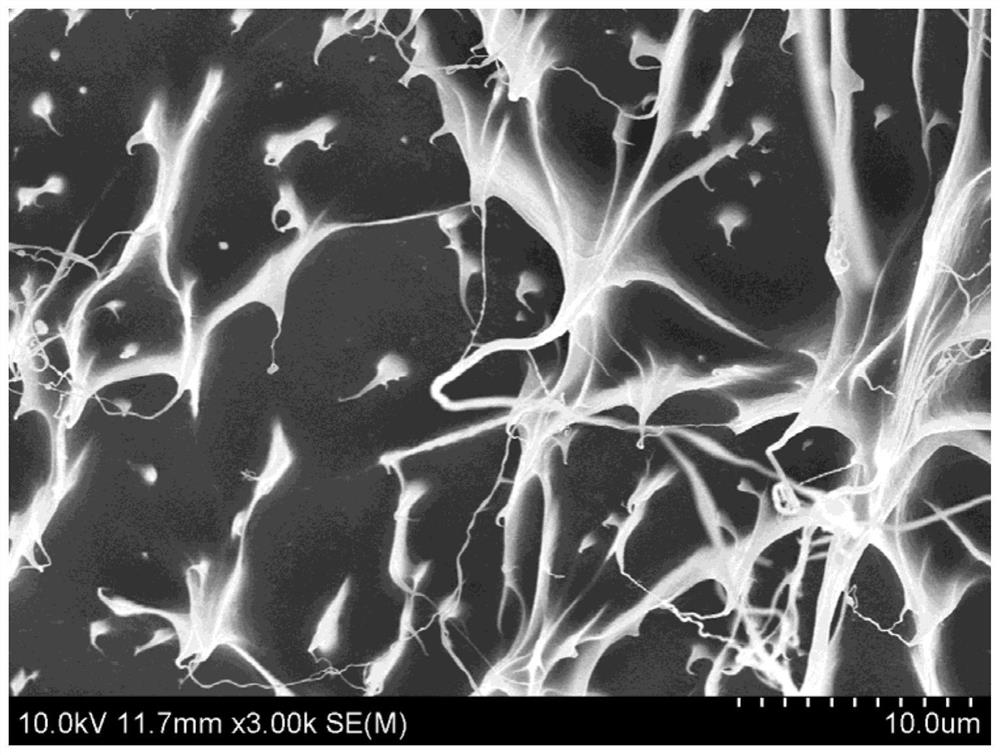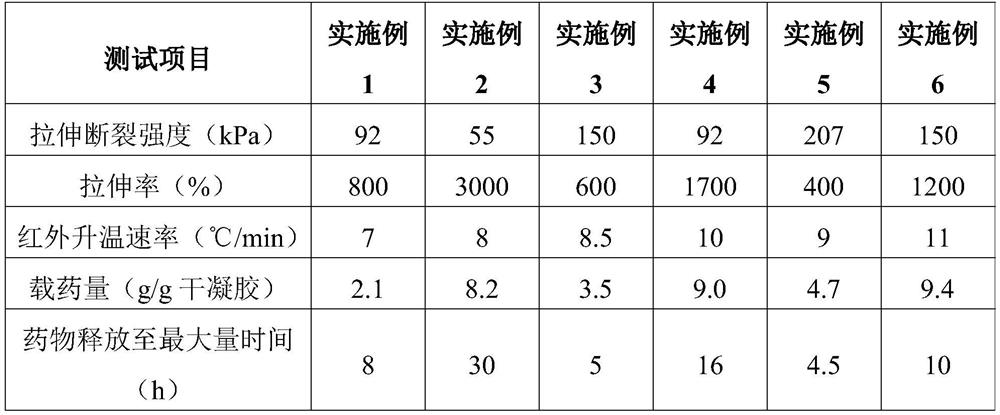Preparation of photothermally responsive drug sustained-release hydrogel based on magnetic cellulose nanocrystals
A photothermal response, cellulose technology, applied in the photodissociation of drugs in vivo, medical preparations with non-active ingredients, medical preparations containing active ingredients, etc., can solve the problem of poor flexibility of hydrogels and limit practical applications , easy to brittle and other problems, to achieve the effect of good mechanical tensile properties
- Summary
- Abstract
- Description
- Claims
- Application Information
AI Technical Summary
Problems solved by technology
Method used
Image
Examples
Embodiment 1
[0034] Step 1, using acid hydrolysis method to extract CNC solution from plant material. Specifically: Add a certain quality of plant raw materials into a 1:1 mixed solution of concentrated sulfuric acid and deionized water, heat and hydrolyze at 65°C for 1.5 hours, stop heating and add deionized water to dilute, let stand overnight, and remove the supernatant , centrifugal cleaning, dialysis, and ultrasonication to obtain a CNC solution.
[0035] Step 2, get CNC solution (mass fraction is 1.1wt%), add different valence iron ions, Fe 2+ , Fe 3+ The molar ratio of ammonia and ammonia is 1.1:2:10, under alkaline conditions (controlling and adjusting the pH value is greater than 10) and in-situ synthesis of magnetic nanoparticles on the CNC (the mass ratio of CNC to the generated magnetic nanoparticles is 12:1 ), reacted at 75°C for 15 minutes to obtain a colloidal solution;
[0036] Step 3: Take 5 g of the colloidal solution obtained in Step 2, add 1 g of high molecular weigh...
Embodiment 2
[0039] The specific method and steps are mostly the same as in Example 1, except that in step 3, no crosslinking agent is added.
[0040] From figure 1 and figure 2 It can be seen that the entanglement density of the polymer network is significantly reduced when no cross-linking agent is added.
Embodiment 3
[0042] The specific method and steps are mostly the same as in Example 1, except that in step 3, the amount of added polymer monomer is 0.8 g.
PUM
| Property | Measurement | Unit |
|---|---|---|
| tensile strength | aaaaa | aaaaa |
| tensile strength | aaaaa | aaaaa |
| particle diameter | aaaaa | aaaaa |
Abstract
Description
Claims
Application Information
 Login to View More
Login to View More - R&D
- Intellectual Property
- Life Sciences
- Materials
- Tech Scout
- Unparalleled Data Quality
- Higher Quality Content
- 60% Fewer Hallucinations
Browse by: Latest US Patents, China's latest patents, Technical Efficacy Thesaurus, Application Domain, Technology Topic, Popular Technical Reports.
© 2025 PatSnap. All rights reserved.Legal|Privacy policy|Modern Slavery Act Transparency Statement|Sitemap|About US| Contact US: help@patsnap.com



